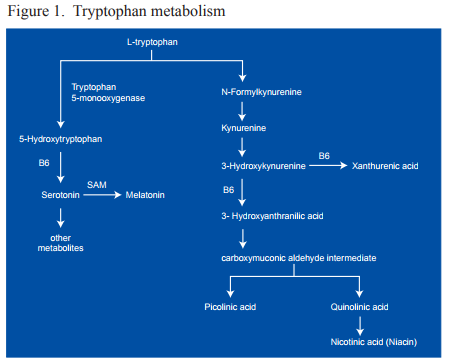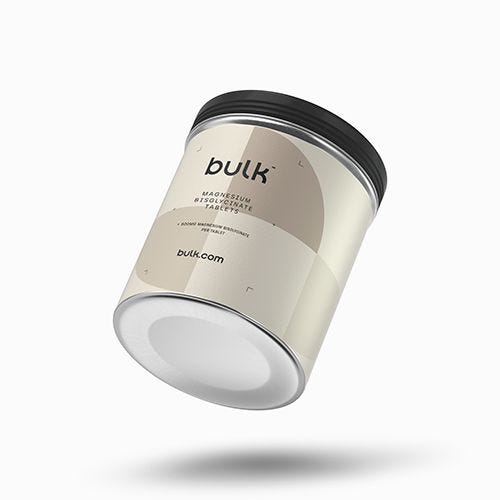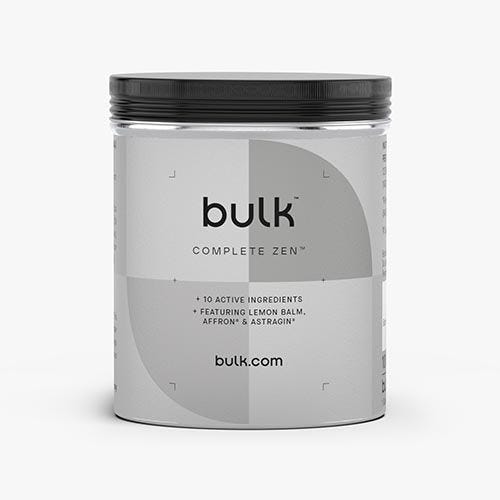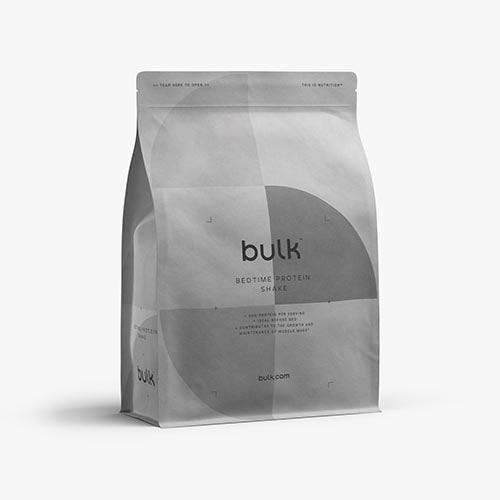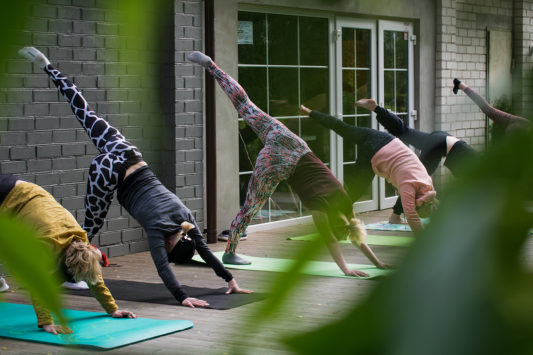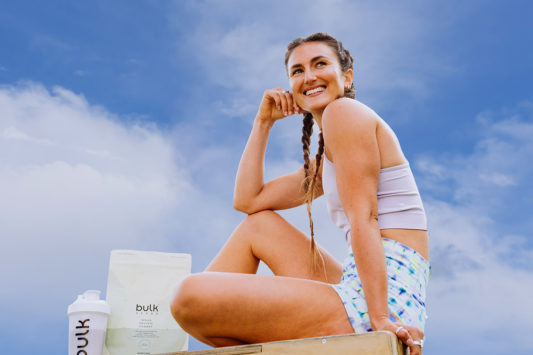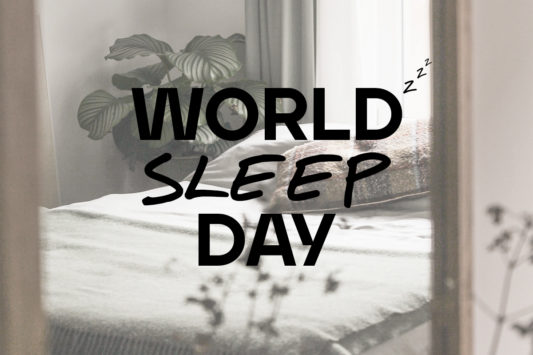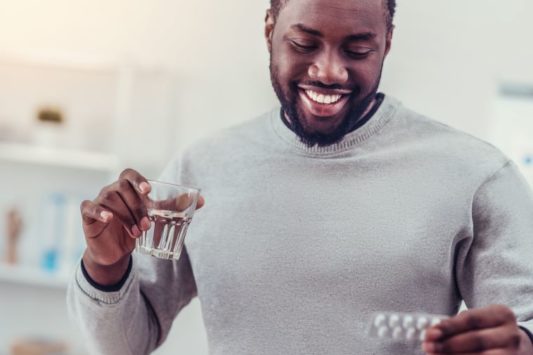Sleep is a precious commodity these days. There are some nights, no matter what you try – you just cannot seem to drift off. We’ve all had those nights staring at the ceiling as your precious few hours of shut-eye gradually tick away from you. So this year, in honour of World Sleep Day, we look the most tried and tested natural sleep aids to support a restful sleep.
Magnesium
Magnesium is an essential mineral which is found in grains, green leafy veg and a number of other foods. A surprisingly high number of adults in the UK don’t come close to the recommended daily intake of 375mg magnesium. When people start becoming deficient, there can be some fairly broad knock-on effects, one of which may be reduced sleep quality. The good news? The results of numerous studies suggest an improvement in sleep quality with supplemental magnesium.
A study from Nielsen et al. (2010), examined the effect of magnesium supplementation on 100 adults, some of whom showed signs of a magnesium deficiency at the start of the study. Through 7 weeks of supplementation with 320mg magnesium, serum magnesium levels normalised for the deficient subjects, inflammatory markers were reduced and sleep quality improved. Winner.
Another study by Held et al. (2002), demonstrated a significant increase in slow-wave sleep and a decrease in cortisol (stress hormone) following 20 days supplementation with magnesium. Whilst there’s still a lot of ground to cover in terms of human studies, magnesium in the form of our highly-bioavailable Magnesium Bisglycinate could represent a low cost and low-risk bedtime supplement.
Melatonin
Melatonin is naturally produced hormone by the body that controls the sleep/wake cycle. Levels of melatonin increase after the sun goes down, letting us know that it’s time to sleep. One of the reasons why it’s so important to avoid electronic devices such as phones and laptops directly pre-bed is that the bright blue light can interfere with melatonin production. As little as 1mg of supplemental Melatonin can help to reduce the amount of time it takes to fall asleep. Efficient. Melatonin is classed as a medicine in Europe meaning that we’re unfortunately not allowed to sell it. However in some countries such as the US, melatonin is a very popular inclusion in bedtime supplements.

Lemon Balm
Lemon Balm (Melissa officinalis) is a herb commonly used for a range of health benefits. You’ll probably recognise it as the perennial that has a habit of taking over unattended gardens. While this might cause stress to your avid gardener, if they were to dry the leaves out and ingest them, they may feel a bit more relaxed. Lemon Balm has been traditionally used for calming purposes, as a result, it’s gathered a lot of interest from researchers looking into anxiety-related insomnia. So, what does the research say with regards to this humble herb?
One of the proposed mechanisms of action for Lemon Balm is that it attenuates the breakdown of Gamma-Aminobutyric Acid (GABA); a depressive neurotransmitter that is naturally produced in the brain. Preliminary research in the early 2000s reported that supplementation with Lemon Balm extract could help improve self-reported feelings of calmness under stressful conditions.
The link to perceived feelings of calmness prompted a further trial by Cases et al. (2011). This found that 600mg of standardised Lemon Balm extract taken on a daily basis for 15 days helped to alleviate mild to moderate symptoms of anxiety. The extract in this study was standardised for rosmarinic acid and hydroxycinnamic acid, two naturally occurring organic acids. The most interesting finding was that symptoms of insomnia were significantly reduced by 42% in a young and otherwise healthy population. This definitely warrants future research and it will be interesting to see if these results can be replicated in a larger study.
Chamomile
A common ingredient found in relaxing teas, this plant has been used as an agent for promoting relaxation and sleep for hundreds of years. There is some promising evidence for the effect of Chamomile on feelings of anxiety. In the first of its kind, Amsterdam et al (2009) observed a reduction in anxiety scores of 61 outpatients with Generalised Anxiety Disorder following 8 weeks supplementation with a standardised chamomile extract.
So far, Chamomile has been shown to be equivocal when it comes to sleep itself. Kupfersztain et al (2003) noted an alleviation in sleep disturbances and fatigue in menopausal women following supplementation with a combination of Chamomile and Ginseng. Conversely, Zick et al (2012) reported no significant improvement in sleep latency or quality in individuals with primary insomnia following 28 days supplementation with 540mg of a standardised chamomile extract.
The exact mechanism of action of Chamomile is not yet known. It’s possible that it is at least in part due to a naturally occurring bioflavonoid known as Apigenin. This bioflavonoid is thought to produce sedative effects through modulation of GABA receptors. However, the levels of Apigenin required to be effective are typically thought to be higher than those provided by the Chamomile extracts in this study, suggesting there is probably something else at play here too. The conclusion for Chamomile and sleep – interesting and requires more research.
Tryptophan and 5-HTP
Tryptophan is an essential amino acid typically obtained in the diet through meat and dairy sources. It’s directly used in protein synthesis and is a precursor for many bioactive compounds, including Niacin (B3), Melatonin and Serotonin (the ‘happy’ hormone). Once ingested, it undergoes a series of changes and processes before it becomes one of these end products. 5-HTP or 5-Hydroxytryptophan is a metabolite created as Tryptophan progresses to becoming Serotonin. The thinking is, that as 5-HTP is the direct precursor to serotonin and can’t be shunted into muscle protein synthesis or niacin production, it should therefore be more effective than pure Tryptophan at raising serotonin levels. The Tryptophan metabolism cycle in the body is shown below in Figure 1 by Birdsall (1998).
The effect of Tryptophan on sleep has been the subject of more recent research. In a recent study of almost 30,000 US adults, it was found that higher dietary Tryptophan intake was positively associated with sleep duration (Lieberman et al, 2016). The actual requirement of Tryptophan by the body is around 5mg per kg body weight per day (350mg for a 70kg male), however higher intakes of Tryptophan from diet and supplementation are common in Western society (up to around 70mg per kg body weight per day).
In another study (Fukushige et al, 2014), it was noted that consuming a breakfast rich in L-Tryptophan could increase melatonin secretion at night. Subjects in this study were young and healthy. The increase in melatonin was highest when the high protein breakfast was combined with sitting in bright light during the daytime. Interestingly, there was no significant improvement in sleep quality noted in this study, despite the increased melatonin levels. The total amount of subjects in this study were relatively low, so it’s entirely possible that future studies will find more conclusive results.
Supplemental Tryptophan and 5-HTP are frequently used by consumers with the intention of increasing serotonin levels as well as increasing melatonin release & improving sleep quality. One thing that we would always recommend is to not double up on these supplements, just pick one. We would also strongly advise never to take something like Tryptophan or 5-HTP alongside any medication for depression or chronic anxiety, such as SSRI’s. Having too much serotonin in the brain has some very severe, negative side effects. If you’re at all confused then we’d strongly recommend speaking with a healthcare professional before starting supplementation.
Diet & Lifestyle
In conjunction with these suggestions, there are many diet and lifestyle factors that impact our sleep quality. As previously mentioned, screen time before bed can have a negative impact on our ability to produce melatonin which helps us fall asleep. Another consideration is caffeine consumption. When consumed late in the day, caffeine stimulates your nervous system and may stop your body from naturally relaxing at night. Finally, our favourite recommendation – exercise. It might not be best to plan a workout just before bed due to its stimulatory effect, as exercise increases alertness and hormones like epinephrine and adrenaline. However, daily exercise has been shown to improve sleep quality through a number of studies and anecdotal evidence – you may have even experienced this effect yourself too.
Conclusion
The bottom line – sleep plays a key role in your health. In order to support your overall wellbeing, prioritising a good nights sleep by incorporating some of the above suggestions will be beneficial. It’s not a case of a one-size-fits-all effect with supplements. It’s about finding the supplement(s) and dose(s) that work for you, individually. So, our recommendation would be to see which ones appeal to you the most, do some reading around them and give them a try.
Related articles
Want to see more general health-related content? We believe that every person, with support, has the right to transform their lives through fitness. That’s why we’ve put together hundreds of articles with expert advice, all to help you on your fitness journey. From sleep to mental health, see our other health and wellbeing articles.
Natural sleep aids Benefits of a good nights sleep
Pre-bed protein Top supplements for wellbeing
Why is recovery so important? How to improve your wellbeing
Gym for mental health Vitamins for energy and tiredness
Best exercises for mental health Best vitamins for tiredness
Supplements that help with sleep

